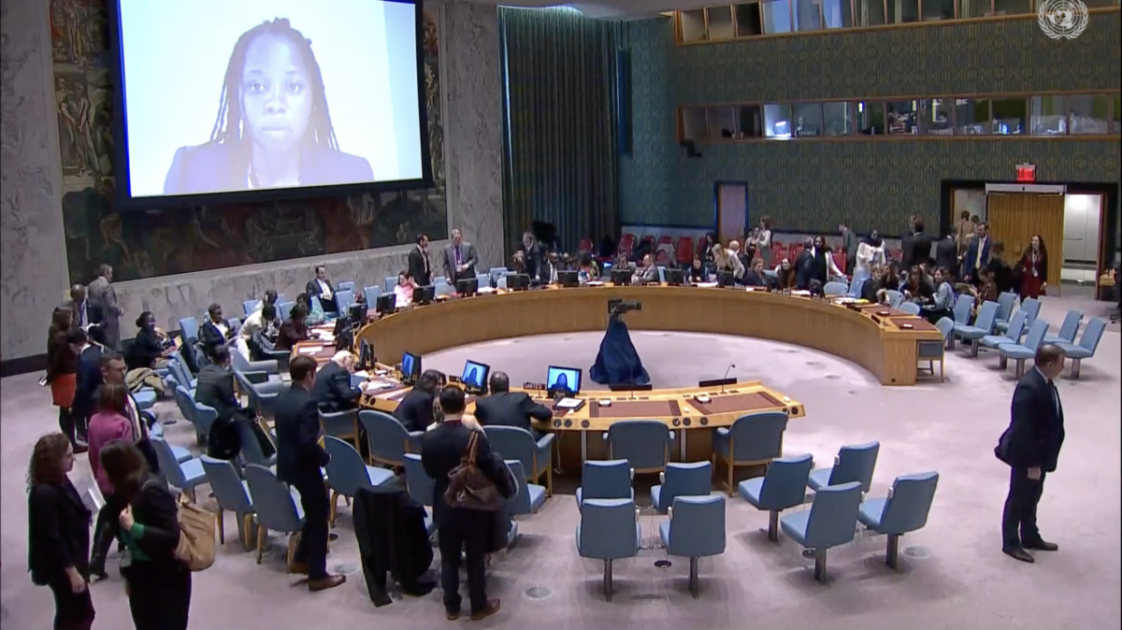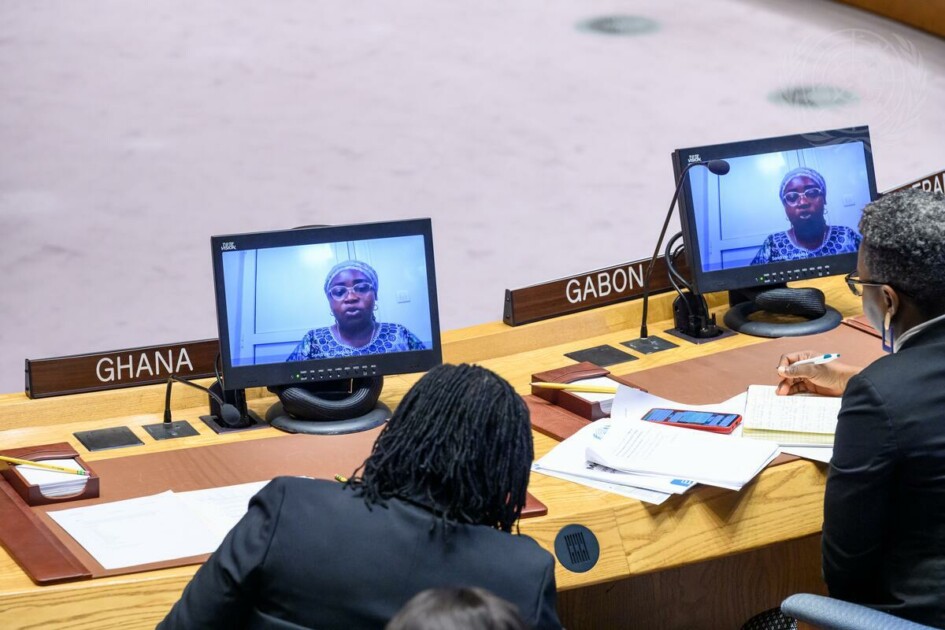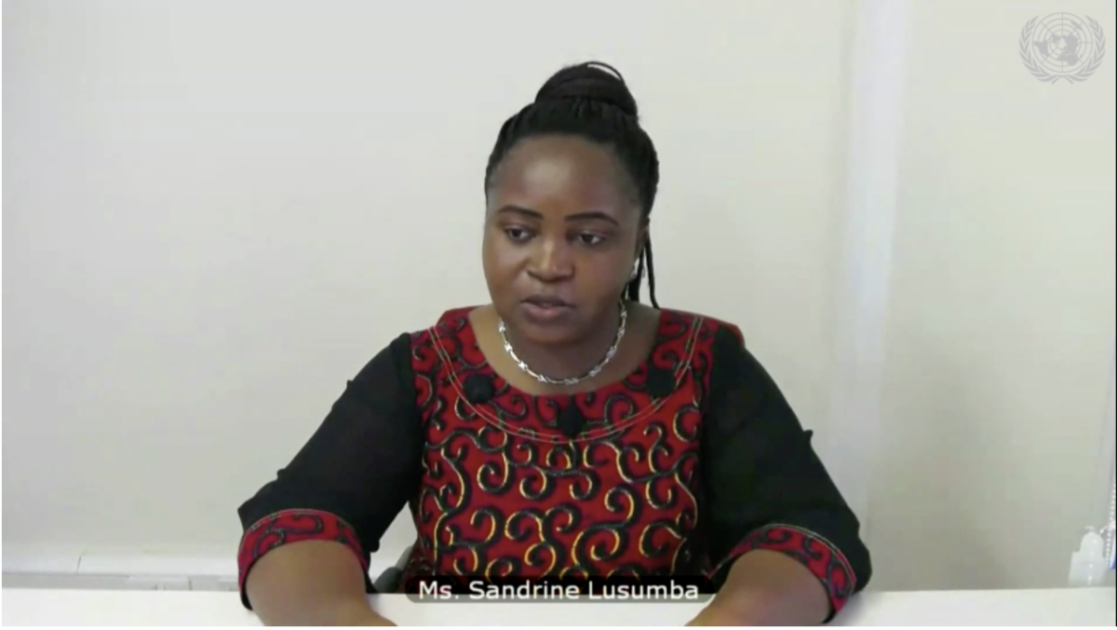Democratic Republic of the Congo
Women in the Democratic Republic of Congo continue to face widespread sexual violence, disease, and displacement in conflict situations arising from clashes between dozens of armed groups. Often, sexual violence and rape are used as terror tactics and weapons of war, and despite the ratification of the Convention on the Elimination of All Forms of Discrimination against Women (CEDAW) and the Women’s Platform for the Peace, Security and Cooperation Framework, women are still largely underrepresented in peacebuilding efforts. Additionally, women activists face rape as a form of torture by government actors who disagree with their political activity. The United Nations Organization Stabilization Mission in the DRC (MONUSCO) aims to provide protection for civilians, including reducing the threat of armed groups perpetrating sexual and gender-based violence, monitoring and reporting on sexual violence and ensuring women’s participation in stabilization and national political dialogue.
Democratic Republic of the Congo
Women in the Democratic Republic of the Congo continue to face widespread sexual violence, disease, and displacement in conflict situations arising from clashes between dozens of armed groups. Often, sexual violence and rape are used as terror tactics and weapons of war, and despite the ratification of the Convention on the Elimination of All Forms of Discrimination against Women (CEDAW), and the Women’s Platform for the Peace, Security and Cooperation Framework, women are still largely underrepresented in peacebuilding efforts.
Additionally, women activists face rape as a form of torture by government actors who disagree with their political activity. The United Nations Organization Stabilization Mission in the DRC (MONUSCO) aims to provide protection for civilians, including reducing the threat of armed groups perpetrating sexual and gender-based violence, monitoring and reporting on sexual violence and ensuring women’s participation in stabilization and national political dialogue.
Current and Past Recommendations to the UN Security Council (Monthly Action Points)
As noted in November’s NGOWG MAP, the situation for women and girls in the DRC remains dire. In December’s review of the MONUC mandate, the Security Council has the opportunity to address some of the difficulties and concerns regarding the implementation of MONUC’s previous mandate. Specific action by the Council should include:
- Women protection advisors (WPAs) in the role of monitoring, reporting, and devising protection strategies. WPAs would liaise with MONUC’s joint protection teams and Congolese NGOs working on issues of concern to women and girls; gather information on the risks facing women and girls; devise protection strategies to mitigate these risks; ensure communication with the work of child protection advisors; and harness a system-wide UN response to implement those strategies.
- Regarding operation Kimia II, any continuation of MONUC’s support to FARDC must be conditional upon compliance by FARDC units and commanders with human rights law and international humanitarian law. The impact of Kimia II on civilian populations must be taken into account, as per the priority the Council has given to protection of civilians in the MONUC mandate.
- The arms embargo should be strictly enforced and should apply to all those suspected of committing violations of human rights or international humanitarian law. The Sanctions Committee should act promptly on the findings of the group of experts. When selecting individuals targeted for sanctions the Security Council should follow a process that is transparent and based on clear criteria and a uniformly applied standard of evidence. Those subject to sanctions must have direct access to an effective, independent, review mechanism.
- Vetting and training of integrated forces, including, human rights and protection training should be mandatory.
- The mandate renewal should include an explicit obligation to support and protect human rights defenders.
- Those indicted at national and international levels should be arrested for international crimes, including crimes of sexual violence.
As noted in November’s NGOWG MAP, the situation for women and girls in the DRC remains dire. In December’s review of the MONUC mandate, the Security Council has the opportunity to address some of the difficulties and concerns regarding the implementation of MONUC’s previous mandate. Specific action by the Council should include:
- Women protection advisors (WPAs) in the role of monitoring, reporting, and devising protection strategies. WPAs would liaise with MONUC’s joint protection teams and Congolese NGOs working on issues of concern to women and girls; gather information on the risks facing women and girls; devise protection strategies to mitigate these risks; ensure communication with the work of child protection advisors; and harness a system-wide UN response to implement those strategies.
- Regarding operation Kimia II, any continuation of MONUC’s support to FARDC must be conditional upon compliance by FARDC units and commanders with human rights law and international humanitarian law. The impact of Kimia II on civilian populations must be taken into account, as per the priority the Council has given to protection of civilians in the MONUC mandate.
- The arms embargo should be strictly enforced and should apply to all those suspected of committing violations of human rights or international humanitarian law. The Sanctions Committee should act promptly on the findings of the group of experts. When selecting individuals targeted for sanctions the Security Council should follow a process that is transparent and based on clear criteria and a uniformly applied standard of evidence. Those subject to sanctions must have direct access to an effective, independent, review mechanism.
- Vetting and training of integrated forces, including, human rights and protection training should be mandatory.
- The mandate renewal should include an explicit obligation to support and protect human rights defenders.
- Those indicted at national and international levels should be arrested for international crimes, including crimes of sexual violence.
Relevant Resources









